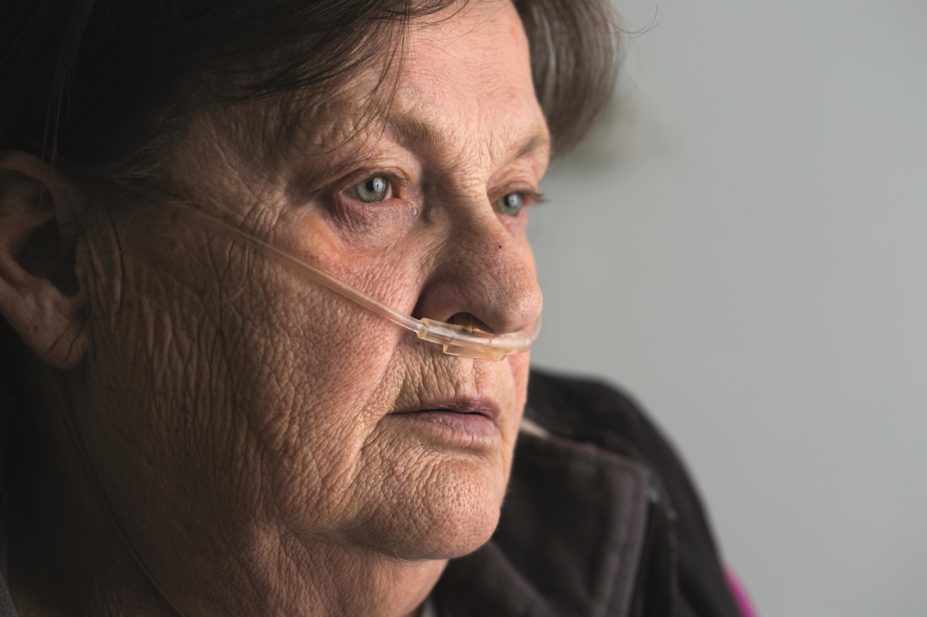
Shutterstock.com
In the UK, premature death for chronic obstructive pulmonary disease (COPD) is twice as high as the European average[1]
. COPD alone is the second most common cause of hospital emergency admissions at a cost of £236.6m per annum[1]
, with 31% of patients readmitted to hospital within 90 days of discharge[2]
. Moreover, there is significant variation in measures of COPD care between hospitals across the UK, and there is a need for improved hospital discharge procedures and community follow up in order to reduce readmissions and improve clinical outcomes.
One way to achieve this is through COPD discharge care bundles — a shortlist of evidence-based practices which should be implemented before discharge for all patients admitted with acute exacerbations of COPD. These can help standardise practice to reduce variation in the care of patients, improve clinical outcomes and reduce readmissions.
The discharge bundle involves reviewing patients’ inhaler technique; providing a COPD self-management plan and “rescue” medicines of antibiotics and oral corticosteroids if necessary; referring smokers to a smoking cessation service; referring patients to a pulmonary rehabilitation programme if needed; and following up post discharge in line with the National Institute for Health and Care Excellence quality standards[3]
.
At Barts Health NHS Trust, a COPD discharge care bundle was developed through the commissioning for quality and innovation (CQUIN) scheme (an incentivisation scheme for NHS hospitals introduced in 2009), which is applied to each patient admitted with a primary or secondary diagnosis of an acute COPD exacerbation for more than 48 hours on all wards. It is tailored to individual needs to encourage sustainable change in clinicians’ behaviour.
We did this in July 2014, led by the respiratory pharmacy department across two of its hospitals, Newham and Whipps Cross hospitals. During the seven-month period since its initiation, 517 eligible patients were admitted as a result of a COPD exacerbation. Of these, 454 (88%) patients successfully received the care bundle.
Implementing the care bundle has given us a structured approach to COPD care. In addition, this initiative has also led to other developments, such as greater cross-team working, better referral systems for smoking cessation, improved spirometry follow up for patients, greater collaboration with primary care colleagues and positive patient feedback.
At a time when healthcare resources in the UK are becoming increasingly stretched, hospital pharmacists have a vital role in ensuring that patients with COPD receive optimal care when they are discharged. Given the successful outcomes of this initiative within Barts Health, we believe other pharmacy departments can use this as a model to improve COPD clinical care and associated outcomes.
Gulseren Kaya is specialist clinical pharmacist, respiratory medicine; Sehrish Mushtaq is specialist clinical pharmacist, respiratory medicine; and Hasanin Khachi is lead respiratory pharmacist, all at Barts Health.
References
[1] Department of Health. (May 2012). An Outcomes Strategy for COPD and Asthma: NHS Companion Document 2012.
[2] Hopkinson NS, Englebretsen C, Cooley N et al. Designing and implementing a COPD discharge care bundle. Thorax 2011. doi:10.1136/thoraxjnl-2011-200233.
[3] National Institute of Clinical Excellence. COPD Quality Standard (QS10). July 2011.
You may also be interested in
